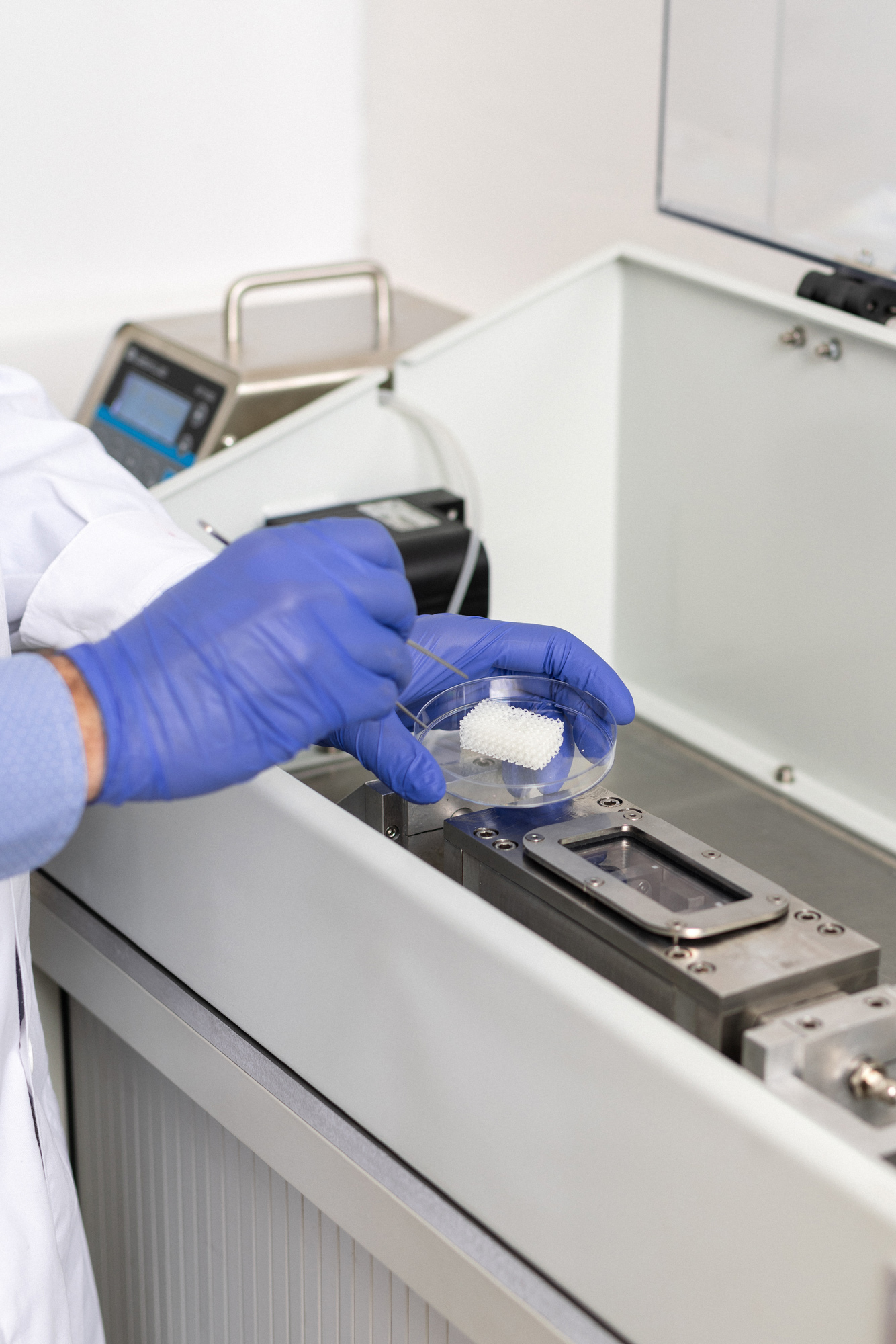Cell culture studies are indispensable in the intersection of nanotechnology, biology, and cutting-edge technology, driving significant advancements in various fields. In laboratory settings, cells are meticulously cultured and manipulated outside their natural environment, facilitating the observation of intricate cellular behaviors, responses to stimuli, and the effects of drugs or treatments.


Furthermore, with our facilities such as vacuum ovens, big bioreactor systems, 3D printers, and laminar flow systems have seamlessly integrated with cell culture studies. Vacuum ovens provide controlled environments, ensuring the precise conditions necessary for cell growth and experimentation.
Nanotechnology has revolutionized this landscape, enabling the manipulation of cells at the nanoscale level. Utilizing nanoparticles, scientists can deliver specific molecules to cells, enhancing drug delivery methods and making targeted therapies a reality.

. Applications
Moreover, cell culture studies find applications in regenerative medicine, where they are used to grow tissues and organs for transplantation. In the field of biotechnology, cultured cells are employed in the production of vaccines, therapeutic proteins, and antibodies. Additionally, cell cultures serve as models for studying cancer biology, enabling researchers to explore the mechanisms of tumor growth and develop targeted therapies. The versatility of cell culture studies continues to drive advancements in both basic research and practical applications, contributing significantly to the progress of modern medicine and biotechnology.

